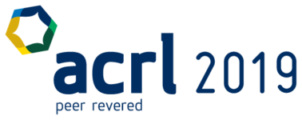Session Description:
Join a panel of librarians and library educators to learn about initiatives that provide a variety of opportunities for student library workers to enhance their skills. These projects include workshops for student employees, collaborations with faculty to provide experience with digital projects, and a partnership between the Libraries and the Library and Information Studies Department to offer students applied experiences. The panel will discuss the strategic directions behind these programs as well as best practices to implement them and offer professional enhancement for students to prepare them for future careers or graduate education.
